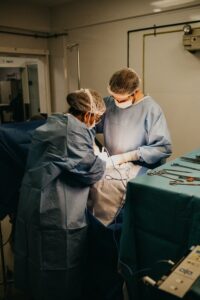Going to the dentist can be a highly anxiety-inducing and potentially painful experience. Many of the procedures involve sharp object prodding into your teeth and gums, which can be uncomfortable, to say the least. However, fear of the dentist’s office is not always limited to the procedures and tools the dentists use. This is why sedation dentistry offers a single solution to these problems.
What is Sedation Dentistry?
Sedation dentistry is a form of oral treatment where the dentist gives the patient some form of sedation, which is basically a calming drug that makes the patient drowsy. There are four different levels of sedation. These are:
- Minimal Sedation where the patient is awake but relaxed
- Moderate Sedation where the patient may not remember the procedure afterward, but is still conscious
- Deep Sedation where the patient is on the verge of being unconscious, but can be awoken easily, and finally
- General Anesthesia where the patient is fully unconscious.
Depending on the needs of the patient or the severity of the procedure, the dentist can administer the appropriate level of sedation.
Who is it for?
Apart from people getting their wisdom teeth removed or having full-blown operations in their mouths, other patients can also opt for sedation dentistry. Some reasons for this may include:
Past traumatic experiences: If the patient has had a bad experience in the past that leaves them uncomfortable with dentists or with prodding and probing inside their mouths, they can choose to be sedated to have a smoother procedure.
An extreme fear of needles or blood: Due to phobias and fear, some patients may faint at the sight of blood or when poked by a needle. To avoid such mishaps, they can ask the dentist to sedate them.
A great dislike of smells and sounds at the dentist: Some patients may find the sounds or smells at the dentist extremely uncomfortable and may find it very difficult to relax when surrounded by stimulus they cannot stand. In such cases, sedation can be used to calm them down and dull their senses.
Are there any side-effects you should be aware of?
Typically, sedation can cause drowsiness, and a dry mouth during the procedure. Sometimes though, it may cause nausea and headaches after the sedation has worn off. These effects, however, will not last more than a couple of hours, making the process extremely safe.
Say goodbye to your fears and book an appointment with West Hills Smiles, one of the best dentist in Woodland Hills, CA. You can read more about sedation on their website, and see the kind of services they can offer you to insure a calm and relaxing dental experience in Woodland Hills, CA.





